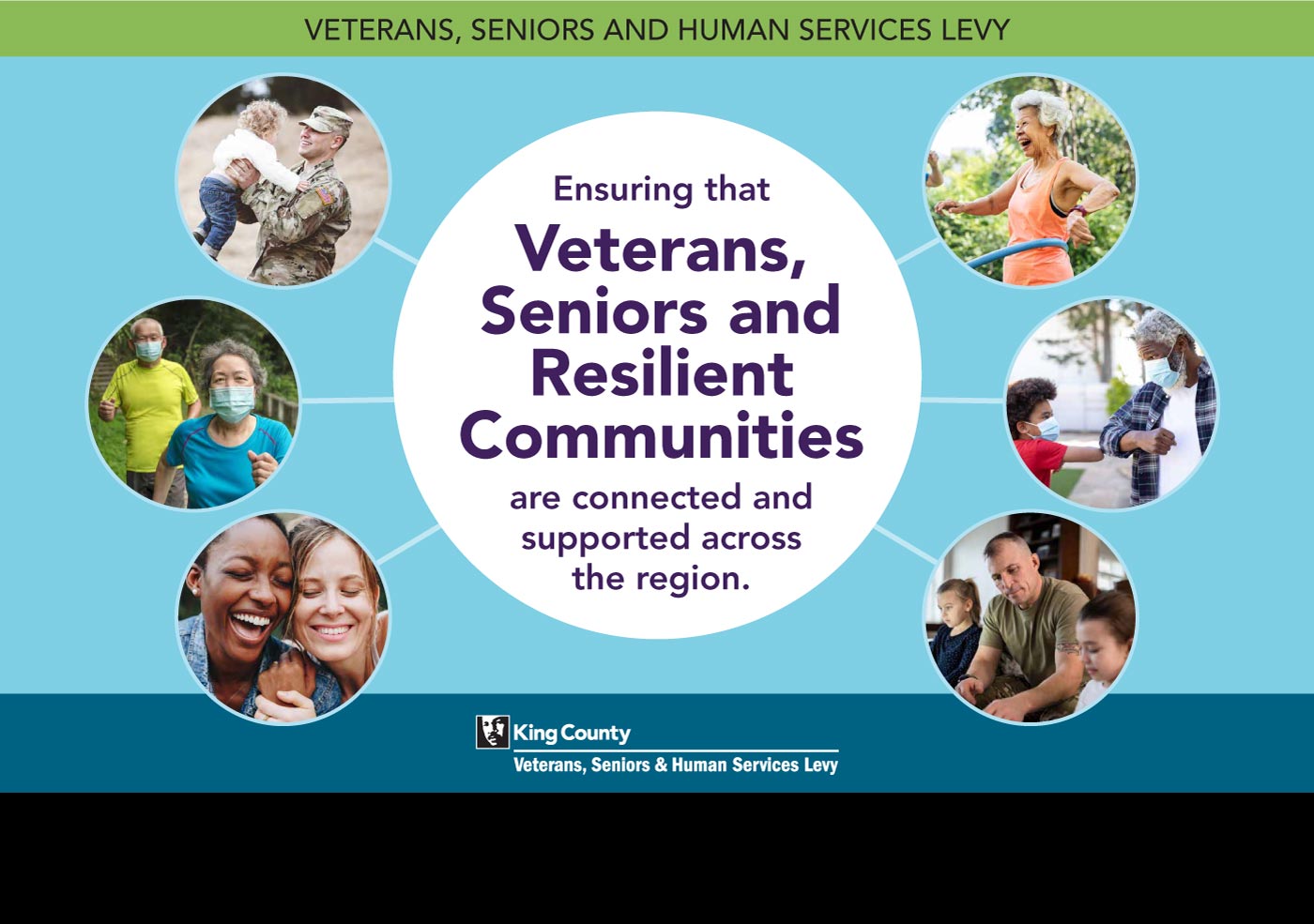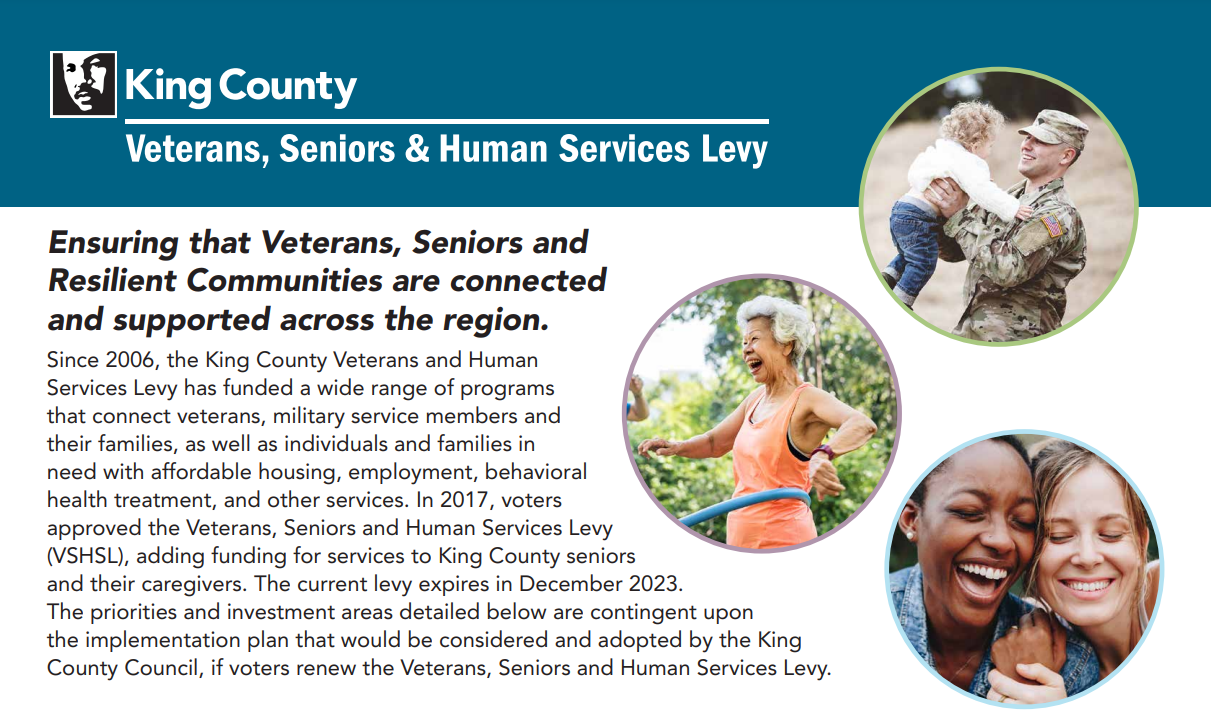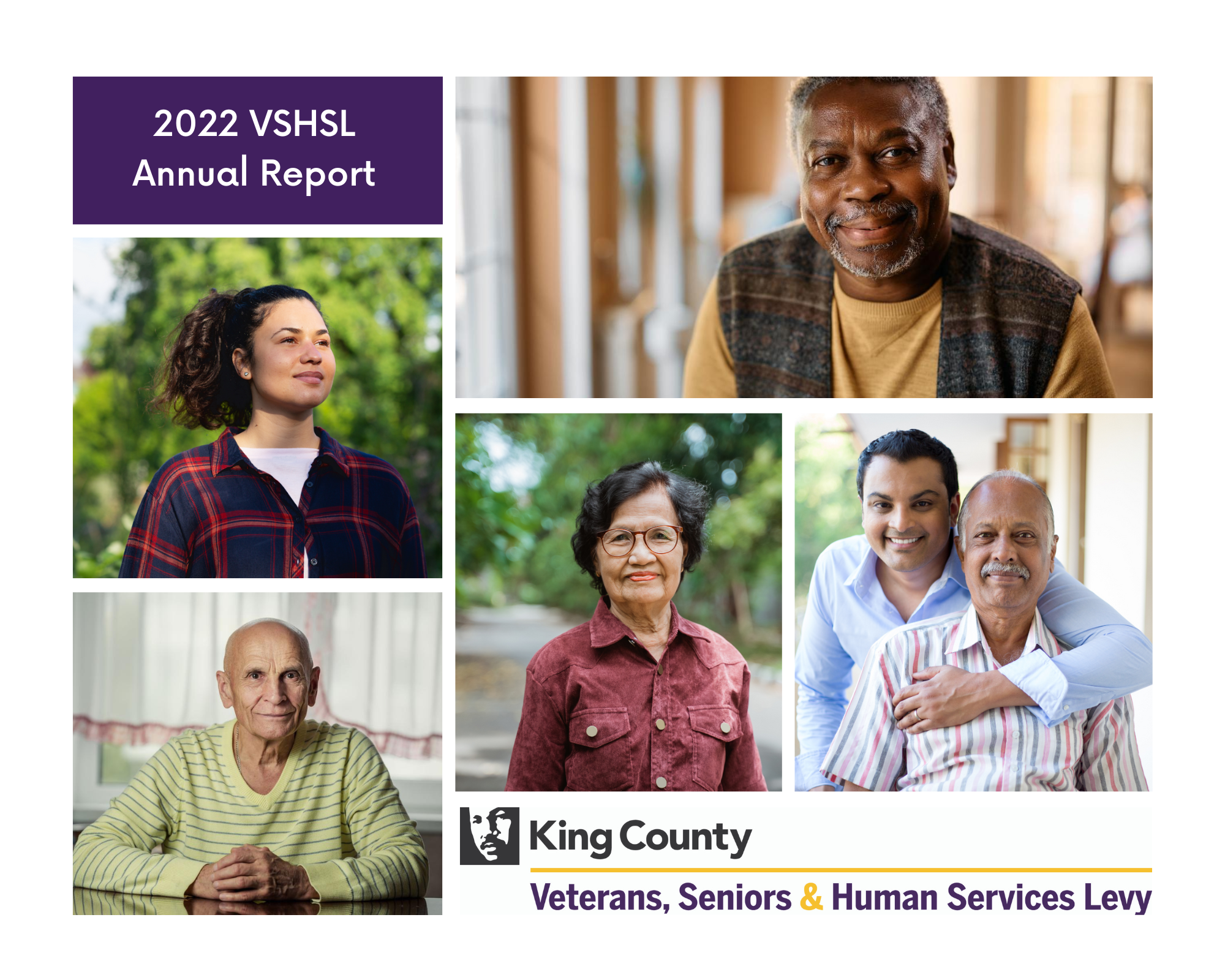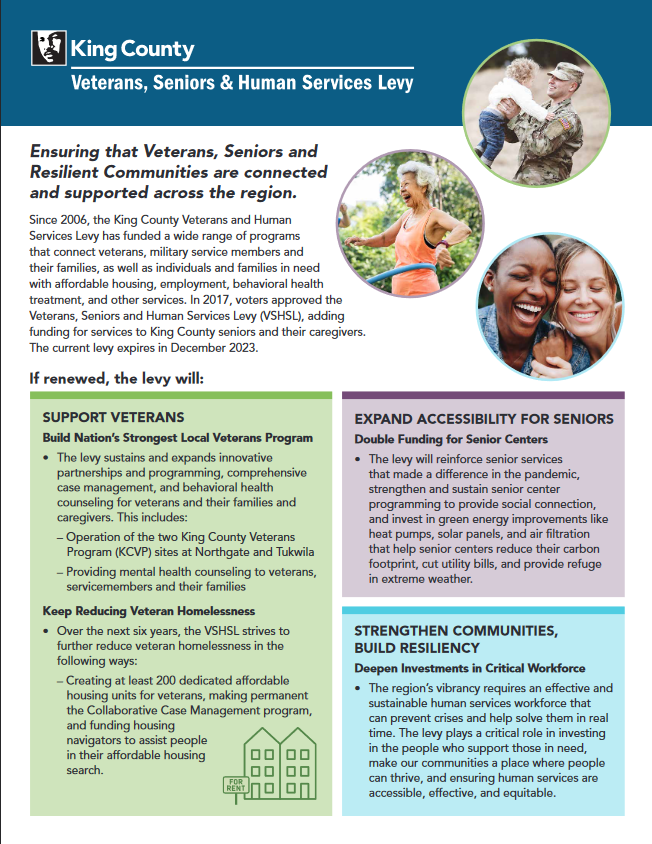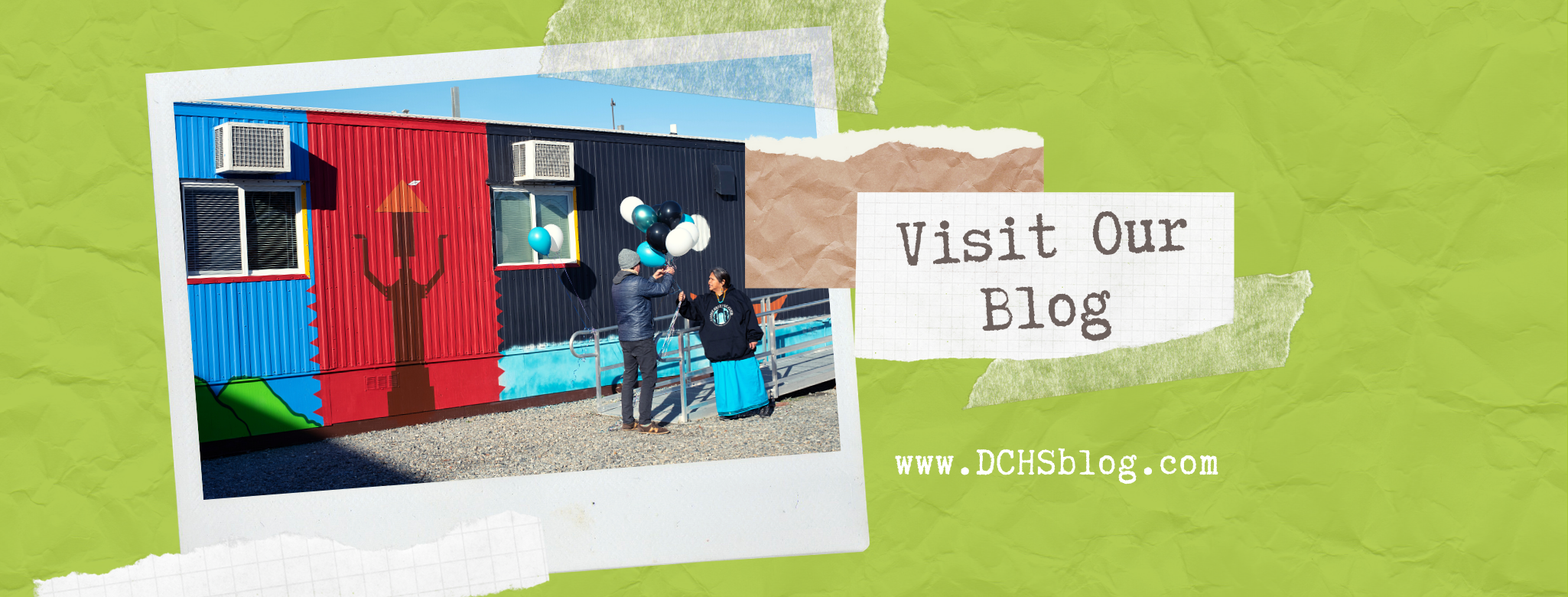Veterans, Seniors & Human Services Levy
Ensuring that Veterans, Seniors and Resilient Communities are connected and supported across the region.
Since 2006, the King County Veterans & Human Services Levy has funded a wide range of programs that connect veterans, military service members and their families, as well as individuals and families in need with affordable housing, employment, behavioral health treatment, and other services. In 2017, voters approved the Veterans, Seniors and Human Services Levy, adding funding for services to King County seniors and their families. In August 2023, over 71 percent of King County voters approved the VSHSL for the fourth time, the highest approval rating in the levy’s history.
Looking for services?
If you're looking for services, call: 211 or the Veterans' Hotline at (206) 454-2799
Are you looking for the King County Veteran's Program?
Since 2018, the levy has:
Veterans
- Served more than 27,000 veterans, servicemembers and their families with fewer eligibility barriers than many federal programs
- Contributed to a 40% reduction in veteran homelessness
- Helped more than 260 veterans, servicemembers, and family members access more than 15,000 mental health counseling sessions
- Built 234 units of affordable housing for veterans and their families
Seniors
- Funded 39 senior centers across the county
- Served more than 100,000 seniors through expanded senior programming
Build Resiliency
- Launched DVHopeline, a countywide, 24-hour multi-lingual and multimodal domestic violence hotline, that received 16,000 calls or texts and referred nearly 7,000 of those callers to additional support
- Funded mobile advocacy services for more than 1,200 survivors of gender-based violence
- Helped build more than 1,000 units of affordable housing and 198 new shelter beds
- Funded 55 agencies with 675 bonuses

 Translate
Translate
